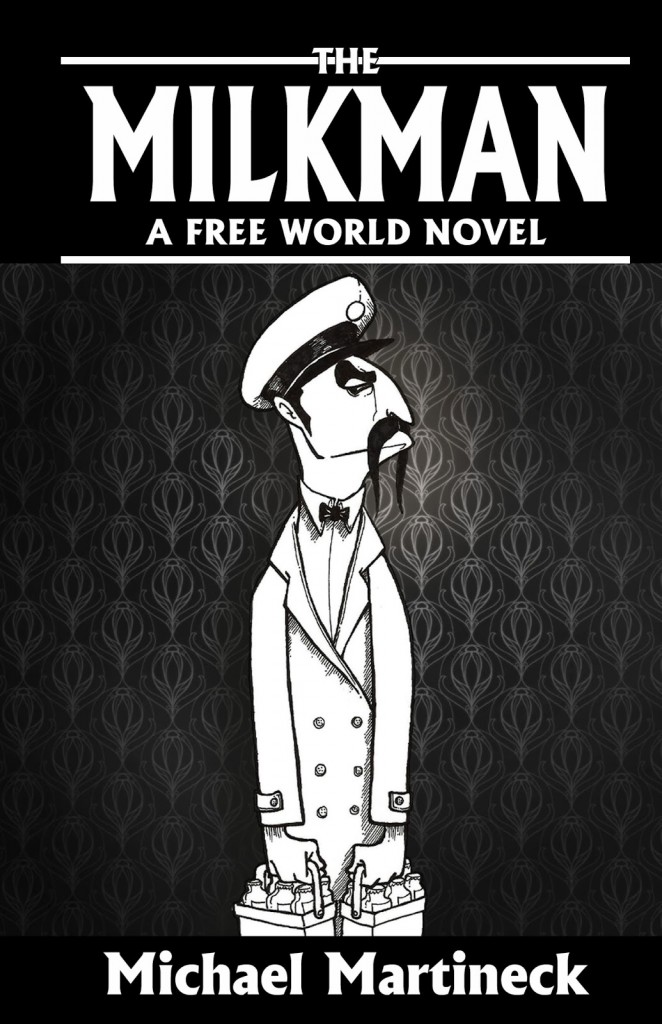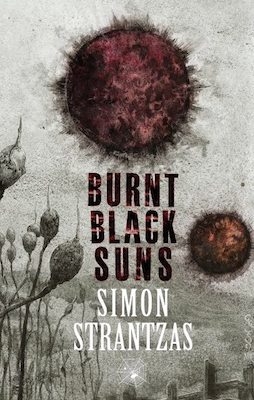
Welcome to this week’s installment of The Scariest Part, a recurring feature in which authors, comic book writers, filmmakers, and game creators tell us what scares them in their latest works of horror, dark fantasy, dark science fiction, and suspense. (If you’d like to be featured on The Scariest Part, check out the guidelines here.)
My guest is author Michael Martineck, whose latest novel is The Milkman. Here’s the publisher’s description:
In Edwin McCallum’s world, nations are no more. The world’s assets are divided among three companies. When one of those assets is murdered, it’s McCallum’s job to figure out what it means to the bottom line. The bottom line’s on filmmaker Sylvia Cho’s mind, too. Who’s footing the bill for this documentary? And who’s the subject, this so-called ‘Milkman’? Systems engineer Emory Leveski knows and it looks like it might cost him his life.
With no governments, there is no crime. Any act is measured against competing interests, hidden loyalties and the ever-upward pressure of the corporate ladder. It’s a tough place for those who still believe in right and wrong. And for these three, it just got a lot tougher.
When Michael told me what he wanted to write about for this feature — man-on-man sexual violence — I was skeptical. Unfortunately, rape, regardless of the genders involved, is a topic that is rarely treated sensitively in horror fiction. More often than not, it comes across as exploitation, titillation, or a joke. Kudos to Michael, then, for handling this subject matter responsibly and respectfully. And now, let’s hear what the scariest part was for Michael Martineck:
Exhilaration in writing comes when a story takes off on its own. I love when the characters come alive and steer the plot, seemingly without me. In these moments I don’t write so much as watch and record. The result is a natural, flowing story. It is wonderful…until things go wrong.
The Milkman is set in a post-government world. I aimed to write a science fiction novel in which economics was the science being fictionalized. I wanted to see how the world might function relieved of state shackles. Sovereignties are the great counterweights in our economies. Without them we are free. Free from everything.
I don’t think we want to be free of everything, though. As with oxygen, humans require just the right amount of freedom to function properly. Too little and we have no lives, too much and, well, we go nuts. Social structures are our defense against cheating, stealing, assault, and sexual violence.
For some it is easy to forget that rape is not a sexual act. It is cruel anger, and most often an act of control, forcing submission. Most of the victims of this horrendous crime are women, and many writers and filmmakers use it as a shortcut to show a character is a “bad guy”. It so frequently objectifies women, stands in place of character, and proves to be lazy writing.
The Milkman includes a group of incarcerated men with little supervision. They develop heir own, violent micro-society. Rape kept making its ugly, ugly existence felt. I thought and fought its inclusion. The rape of men in fiction — when it shows up at all — is used as a way to remove a male character’s masculinity. It is a symbolic method of making him a woman — as if that’s something less than a man.
And so my struggle: to let the darkest parts of my imagination loose on my main character. To share the story of his victimization, avoiding the hackneyed and the misogynistic, and reveal a vital, heroic character. Can I show that a man — that anyone — is no less for having the crime of rape committed upon their person?
It started as a book about economics. Of course, economics is another topic so easily misunderstood. It is not the study of money or finance. It is human nature interacting with human nature. We all exchange through markets, formal and not so much. We all try to better ourselves, our positions and our stations in life. We want to get ahead. Dominate, if necessary. For some of us that might mean physical domination in the worst of ways.
The characters of The Milkman put their various motivations into play in a society in which only the laws of economics (and physics, of course) apply. And while many of the paths are conventional — the struggle for love, happiness, success — some of the techniques the characters used to achieve these results put me ill at ease, left me uncomfortable — freakin’ chilled me along my spine because, no matter how much it felt like my characters were real, all the nastiness still came out of my head and were my responsibility.
Not that it’s all misery. We, the people, can also be great batteries of compassion, endurance and heroism. While writing The Milkman, I never forgot that either. Humans make things work, regardless of how bad the backdrop. Which brings me to what may be the scariest concept in the book: a world in which only the bottom line matters is not that different from our own. My story took off, flew through a dystopia weird and wholly imagined, and landed in a place all too familiar. Frightening.
Michael Martineck: Website / Twitter
The Milkman: Amazon
Michael Martineck has been writing in some form or another since he was seven years old. More recently, he has written short stories, comic book scripts, articles and a trio of novels. DC Comics published some of his work in the ’90s. Planetmag, Aphelion and a couple of other long-dead e-zines helped him out in ’00s, which is also when he published children’s books The Misspellers and The Wrong Channel. Cinco de Mayo, a novel for adults, is now out from EDGE Science Fiction and Fantasy Publishing, which is also the publisher of The Milkman. He lives in Grand Island, NY with his wife and two children.
 Chimera: A Jim Chapel Mission by David Wellington
Chimera: A Jim Chapel Mission by David Wellington


